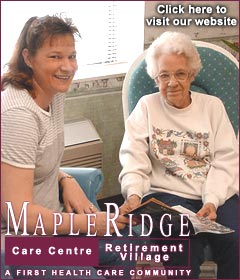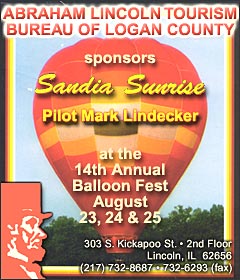|
City Attorney Bill Bates said the new
ordinance, drafted with the help of Springfield attorney Tom Kelty,
would allow Community Integrated Living Arrangements "as a matter of
right" in residential districts that formerly prohibited them.
The move is a response to a lawsuit
brought by Charleston Transitional Facility, Inc., a not-for-profit
corporation that develops and operates group homes throughout the
state. The lawsuit was filed May 2 in U.S. District Court in
Springfield after the city refused to issue a building permit for an
R-1 zoned lot in Stonebridge subdivision on the west side of town.
David Krchak, attorney for Charleston
Transitional Facility who requested the building permit last March,
said then the city’s ordinance was illegal because it violated the
federal Fair Housing Act. Krchak attended the council’s work session
Tuesday evening and said he has reviewed the proposed ordinance and
it is "perfectly acceptable." If it is passed, he said, the lawsuit
would be "amicably resolved."
Bates said the new ordinance was "not
just drafted to make the lawsuit go away, but to be in compliance
with the Fair Housing Act."

The city’s current ordinance prohibits
group homes because of its definition of family as not more than
five unrelated individuals. CILAs usually have up to eight
residents.
The public hearing is set for 7 p.m.
Tuesday, Sept. 10. The council will vote on the new ordinance at its
next regular meeting, Sept. 16. Previously several residents of
Stonebridge have attended council meetings to say they opposed
having the group home in their neighborhood because they felt it was
a business, not a residence.
Krchak said the company he represents
has been getting requests for facilities to be built in the Lincoln
community, probably because of the downsizing and threatened closing
of Lincoln Developmental Center.
[to top of second column in this
article]
|

"We are being inundated by families
asking us to provide housing for adult developmentally disabled
individuals in the area," he said.
In other business, the council heard a
request from two members of the Main Street Lincoln playground
committee, asking if the city could allocate $750 to help provide
playground equipment for Scully Park.
The equipment to be bought with city
funds would be specially designed for the disabled, according to
Marge Aper and Betty Verderber. They said the committee has been
working for more than two years to develop the playground, much of
which will be accessible to children in wheelchairs.
"It is age appropriate and meets all
federal standards for accessibility," Aper said. Equipment includes
a sand digger that children in wheelchairs can use, a double bay
swing set and a handicapped-accessible play firehouse. She said the
Lincoln firefighters union has contributed money toward the
firehouse, and the Elks Club and the Knights of Columbus have also
given donations.
Mayor Beth Davis asked if the city
could allocate $750 from the fund set up with illegal handicapped
parking fines.
City Clerk Juanita Josserand said she
thought those funds were set aside for building sidewalks and ramps
to accommodate the handicapped. Bates said he would look at the way
the fund was set up to see whether the donation would be legal.
The council
also heard an announcement that the first fund-raiser for next
year’s sesquicentennial celebration, a street dance, will be Sept.
21 from 6 p.m. to midnight. Preliminary plans call for closing
McLean Street from Pulaski to Broadway for the dance area.
[Joan
Crabb]
|
|
"Making IVHS courses more affordable is
now possible and is a step in the right direction toward expanding
student opportunities and to raising achievement levels for all
students," Gov. Ryan said.
Fall courses begin Aug. 26, and
registration runs through Sept. 15. Courses are open to high school
students in public and private schools and to home-schooled
students. IVHS offers classes in foreign languages, high-level
mathematics and sciences, and other courses that might not otherwise
be available to all students.
"I look forward to a growing student
enrollment while watching course costs decrease even further as
Illinois builds its core curriculum and elective course offerings
over the coming months," Superintendent Schiller said.

IVHS places emphasis on offering
curriculum that ensures students can meet the Illinois Learning
Standards. The fall semester offers 76 full-semester courses and 12
Advanced Placement review and ACT courses. Costs for AP and ACT
review courses are $49 per student.
"This will afford schools who have been
unable to offer a wide array of courses, such as foreign languages
or advanced courses outside the main curriculum, that opportunity,”
the governor said.
“There are places where teachers cannot
be recruited to teach certain subjects and other schools where only
a small number of students interested in a specific topic do not
economically justify a course,” he added. “In these situations, the
Virtual High School will be a valuable mechanism for offering
quality instruction to those who are interested, regardless of the
geographic location or the wealth of the district.”
[to top of second column in this
article]
|

The
Illinois State Board of Education is offering two each AP and
non-AP course scholarships to participating high schools or
districts for the 2002- 2003 school year. The school or district
must be a member of the IVHS network and the high school must have
25 percent or more low-income students.
In addition, four AP exam review
scholarships will be available to students enrolled in face-to-face
AP courses. Students taking an IVHS AP course during the spring
semester of the upcoming school year also will have access to the
online AP exam review.
IVHS began in January 2001 as an
initiative of Gov. Ryan to provide expanded opportunities for high
school students. Both public and private school students throughout
the state have taken advantage of this learning opportunity via the
Internet.
To register
for classes, students should contact their high school guidance
counselor. For more information, go to
www.ivhs.org.
[Illinois
Government News Network
press release]

|